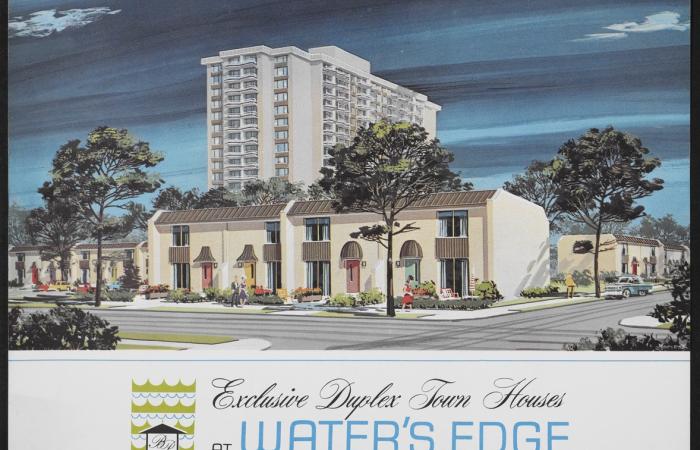
2024 Fall Conference
Registration for the conference is OPEN!
Conference Program
Schedule
November 1, 2024
8:00-8:30 Breakfast and Greeting
8:30-10:15 Institutional Developers
Max Hirsh, Airport City Academy
“Airports as Real Estate Developers: A Transnational Perspective”
Andrew McGee, Smithsonian Institution, National Air and Space Museum
“Selling a Starter Home for the Internet: Real Estate, Built Environment, and Data Centers in Northern Virginia, 1994-2020”
Robin Scheffler, Massachusetts Institute of Technology
“Biotechnology from the Ground Up: Labor and Value in Life Sciences Real Estate”
Comment: Gabrielle Esperdy, New Jersey Institute of Technology
10:15-10:45 Break
10:45-12:30 International Dimensions
Konstantina Kalfa, Athens School of Fine Arts
“Unpacking the near-obscuring ordinary in the 1960s and 1970s Athens”
Daniel Richter, American University and University of Maryland
“Nordelta and the Hemispheric Worlds of Real Estate Developers in the Americas, 1990-2020”
Davide Spina, The University of Hong Kong
“Doomed Dreams: SGI’s Transatlantic Ventures, 1961-72”
Comment: Matthew G. Lasner
12:30-1:30 Lunch (On Site)
1:30-3:15 Residential
Todd Michney, Georgia Institute of Technology
LaDale C. Winling, Virginia Tech
“Supporting Segregated Suburbanization: The Federal Housing Administration, Black Homebuilding, and Civil Rights, 1947-1956”
Laura Redford, Brigham Young University
“The Los Angeles Realty Board and the Creation of Sprawl”
Elaine Stiles, Roger Williams University
“The Builder as Designer: Negotiating Consumer Preferences in Mid-Twentieth Century Suburban Home Building”
Comment: Richard Longstreth, George Washington University
3:15-3:45 Break
3:45-5:30 Environmental Consideration
Jacob Anbinder, Cornell University
“The Biggest Slum on the Face of the Earth: How the Postwar Revolt Against Urban Development Made Modern America”
Jack Hanly, Massachusetts Institute of Technology
“Public Demands and Private Development in the Age of Ecology: The Case of Sea Ranch v. California Coastal Commission”
Juliana Maxim, University of San Diego
“Power Flows: Water and Real Estate Development in Southern California”
Comment: Anna Andrzejewski, University of Wisconsin
5:30-6:30 Reception
-----------------------------------
Call For Papers
Despite the central role that real estate development plays in the physical form and geography of buildings, cities, and suburbs in market economies, scholars have engaged in relatively little research on the inner workings of its figures and processes in relation to the built environment. Historical research is abundant on architects and landscape architects, urban planners, and public policy, as well as on ideas: theories about cities and suburbs and buildings, often evolved in universities, where the stuff of markets and profits is often beyond concern. A similar gap is found in adjacent fields such as business history, whose practitioners have devoted much effort to exploring the financing mechanisms and political alliances of real estate, but less on the buildings and places that result.
“Real Estate Development and the Built Environment” will bring together in conversation scholars from these and related fields in the humanities and social sciences to explore the relationships between private, for-profit real estate and architecture, urbanism, and landscape design. We are interested in empirically based, conceptually rich papers that consider real estate and the developer/development firm as a generator of built environments, especially those that are ordinary or everyday rather than singular or exceptional.
We seek case studies that complicate prevailing ideas about the relationship between the figure of the developer (or the practice of development) and architecture and urban form. In addition, we are interested in papers that examine the historiography of real estate and architecture, urbanism, and landscape design, especially that which interrogates why—whether for pragmatic reasons, such as the absence of developers’ papers from archives, or ideological—the study of developers and real estate development practices has been so marginal to the history and analysis of the built environment.
Specific topics that papers might explore include:
1- Transnational Development: How have developers and development firms imported, shared, or imposed real estate frameworks across national borders?
2- Public Policy: How have developers worked with and against public policies with transformative outcomes on the built environment?
3- Logics of Development: How have the various actors involved in real estate development — such as developers, development firms, design professionals, politicians, and policy makers — worked in tandem to shape the built environment?
4- Innovation: What innovations in the built environment are attributable to developers and/or to negotiation between developers and other actors?
5- Emergence of Real Estate: When, why, and how did private development and the speculative market for built space first emerge in particular national contexts?
Papers are welcome exploring these and related topics in any geography and period in which developers were actively producing the built environment on a speculative basis (that is: for unknown users and for financial profit) by investing in new housing, office space, industrial space, and/or retail and entertainment space.
Please submit proposals of no more than 500 words and a one-page C.V. to Carol Lockman at clockman@Hagley.org by June 15, 2024. Conference presenters will be asked to submit complete versions of their conference papers by October 4, 2024. The conference is planned as an in-person event and will occur on November 1 at the Hagley Library in Wilmington DE. Presenters will receive lodging in the conference hotel and compensation for their travel costs. The conference organizers are planning an edited volume based on a selection of revised conference papers. The program committee is comprised of Matthew G. Lasner, Anna Andrzejewski, Greg Hargreaves, and Roger Horowitz
